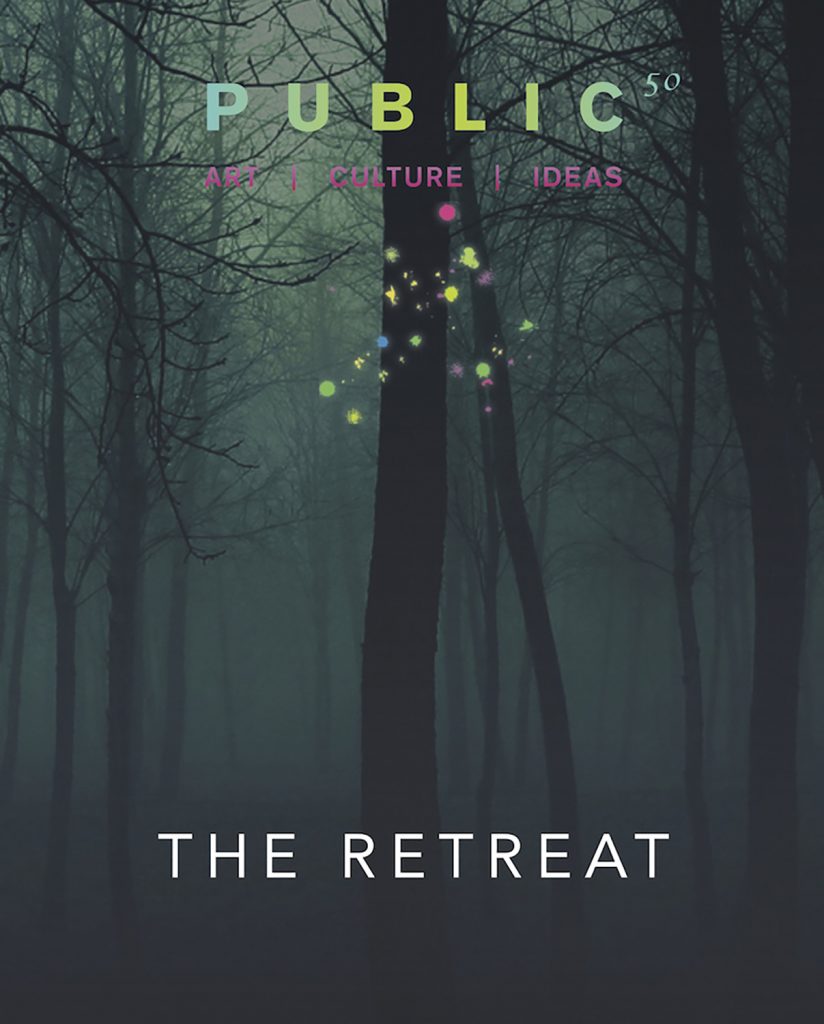Public Journal Issue #50
The Retreat
The question of why the practice of retreat is important, of why it is different from forms of self-alienation, and of why (what might seem like) passivity could be a positive form of agency, remains open. However, the notion and the act of retreat, withdrawal or exodus could be a necessary ground for politics and the politics of aesthetics today, since the productive process of cooperative constitution at the core of the social also owes its potential and validity to the act of spontaneous refusal. Politics and art are projects of infinite creative production triggered by a force that always starts from choice—choosing to do or not to do—and propelled forward by local affections and joyful passions. In retreat, consciousness produces itself by stating the full presence of the present-being without witness and without stage, sensing a homo- or homeo- (‘similar’ or ‘common’ or ‘shared’ in Greek, belonging to humus or the ‘earth’, rather than to homo-, ‘human’, as in Latin) enriched by the love of a collective intelligence yet to be regained. In The Pleasure of the Text, Roland Barthes states, “there is only one way left to escape the alienation of present day society: to retreat ahead of it.” This issue of PUBLIC generates new ways of retreating ahead of the limits, aporias, problems, and crises of a century caught between imaginative and conceptual fertility and sterility—not to effect some questionable escape, but to allow for the generation of new spaces of openness, freedom, and possibility.
Contributors
The Retreat it is the product of a collaboration between dOCUMENTA (13), the Banff Centre, and Banff Research in Culture (BRiC).
